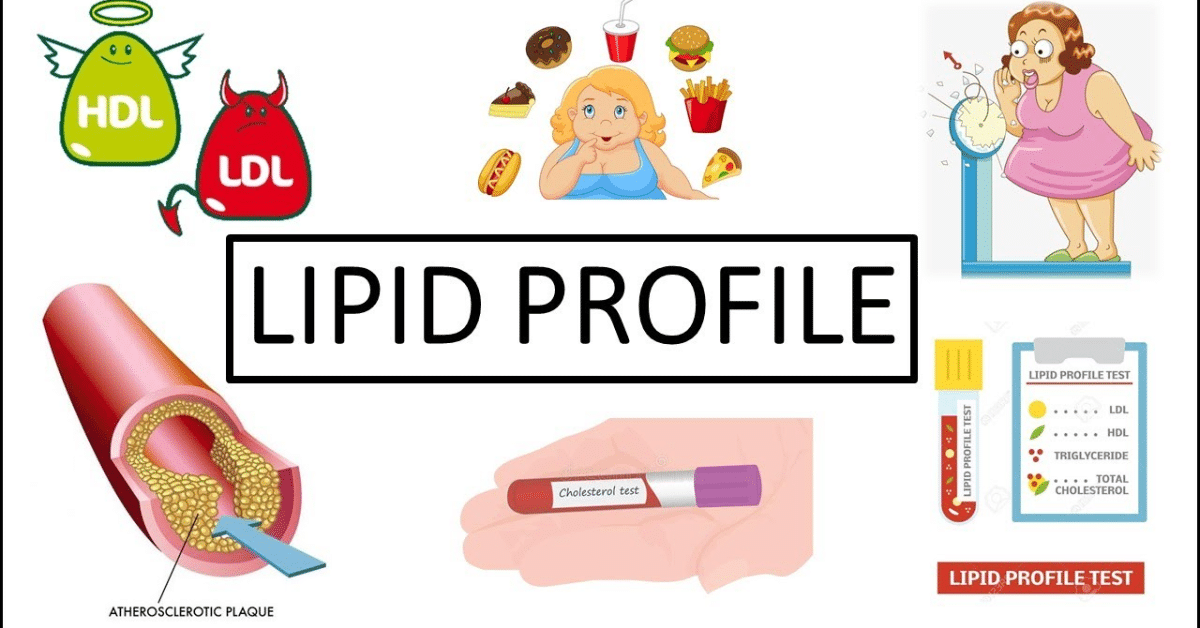Cardiovascular health is a critical aspect of overall well-being, with conditions like heart disease and stroke posing significant health risks worldwide. To assess cardiovascular risk factors and monitor heart health, healthcare professionals often recommend lipid profile testing. In this blog post, we’ll delve into the importance of lipid profile testing in understanding and managing cardiovascular health.
Also Read: The Role of LFT Tests: Insights from the Best Medical Lab for LFT Test in Patiala
What is Lipid Profile Testing?
Lipid profile testing, also known as a lipid panel or lipid profile blood test, is a diagnostic tool used to measure various types of lipids (fats) and cholesterol in the blood. These lipids include total cholesterol, low-density lipoprotein (LDL) cholesterol, high-density lipoprotein (HDL) cholesterol, and triglycerides. Lipid profile testing provides valuable insights into an individual’s risk of developing cardiovascular diseases such as atherosclerosis, heart attack, and stroke.
Importance of Lipid Profile Testing
- Assessing Cardiovascular Risk: Lipid profile testing plays a crucial role in assessing an individual’s risk of developing cardiovascular diseases. Elevated levels of LDL cholesterol, often referred to as “bad” cholesterol, are associated with an increased risk of atherosclerosis and heart disease. Conversely, higher levels of HDL cholesterol, or “good” cholesterol, are considered protective against heart disease. By measuring these lipid parameters, healthcare providers can evaluate an individual’s cardiovascular risk and recommend appropriate interventions to reduce the risk of heart-related complications.
- Monitoring Treatment Efficacy: For individuals already diagnosed with cardiovascular conditions or at high risk of developing them, lipid profile testing is essential for monitoring the efficacy of treatment interventions. Lifestyle modifications, such as dietary changes, exercise, and medication therapy, can help lower cholesterol levels and improve cardiovascular health. Regular lipid profile testing allows healthcare providers to track changes in lipid levels over time, assess the effectiveness of treatment strategies, and make necessary adjustments to optimize outcomes.
- Identifying Familial Hyperlipidemia: Lipid profile testing can also aid in the identification of familial hyperlipidemia, a genetic condition characterized by abnormally high levels of cholesterol and triglycerides in the blood. Individuals with familial hyperlipidemia have an increased risk of developing premature cardiovascular disease. Early detection through lipid profile testing enables healthcare providers to initiate appropriate interventions, such as dietary counseling, lifestyle modifications, and lipid-lowering medications, to manage the condition and reduce the risk of complications.
- Promoting Preventive Healthcare: Incorporating lipid profile testing into routine preventive healthcare screenings can help identify individuals at risk of cardiovascular diseases before symptoms manifest. Early detection allows for timely intervention and implementation of preventive measures to mitigate the risk of heart-related complications. By proactively monitoring lipid levels and addressing modifiable risk factors, individuals can take proactive steps towards maintaining optimal cardiovascular health and reducing the burden of cardiovascular diseases on both individuals and healthcare systems.
What is the role of lipid profile in cardiovascular disease?
The role of lipid profile testing in cardiovascular disease is paramount. Lipids, including cholesterol and triglycerides, are essential fats that play various roles in the body. However, elevated levels of certain lipids, particularly low-density lipoprotein (LDL) cholesterol and triglycerides, and low levels of high-density lipoprotein (HDL) cholesterol are significant risk factors for cardiovascular disease.
A lipid profile test for cardiovascular disease involves measuring the levels of these lipids in the blood. This comprehensive blood test typically includes assessments of total cholesterol, LDL cholesterol, HDL cholesterol, and triglycerides. These lipid parameters provide valuable insights into an individual’s risk of developing cardiovascular diseases such as atherosclerosis, heart attack, and stroke.
High levels of LDL cholesterol, often referred to as “bad” cholesterol, can lead to the accumulation of plaque in the arteries, narrowing them and increasing the risk of heart disease and stroke. Conversely, HDL cholesterol, known as “good” cholesterol, helps remove LDL cholesterol from the bloodstream, reducing the risk of cardiovascular events. Triglycerides, another type of lipid, are fats stored in the body and can also contribute to cardiovascular risk when elevated.
What is a lipid test for cardiovascular disease?
By measuring these lipid parameters through a lipid profile test, healthcare providers can assess an individual’s risk of cardiovascular disease and tailor preventive interventions accordingly. Lifestyle modifications, such as dietary changes, exercise, and medication therapy, may be recommended to lower LDL cholesterol levels, raise HDL cholesterol levels, and reduce triglyceride levels, ultimately improving cardiovascular health and reducing the risk of heart-related complications. Regular monitoring of lipid levels through lipid profile testing is essential for managing cardiovascular risk factors and optimizing heart health.
In conclusion, lipid profile testing is a valuable tool for assessing cardiovascular risk, monitoring treatment efficacy, identifying familial hyperlipidemia, and promoting preventive healthcare. By measuring lipid parameters such as total cholesterol, LDL cholesterol, HDL cholesterol, and triglycerides, healthcare providers can gain valuable insights into an individual’s cardiovascular health and tailor interventions accordingly. Incorporating lipid profile testing into routine healthcare screenings empowers individuals to take proactive steps toward maintaining optimal cardiovascular health and reducing the risk of heart-related complications. Schedule your lipid profile test today to take control of your heart health and well-being.




